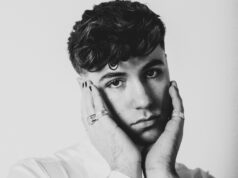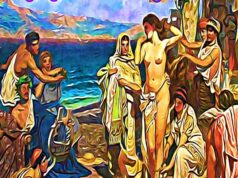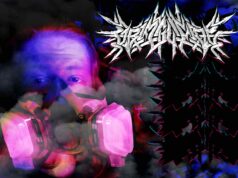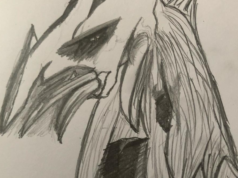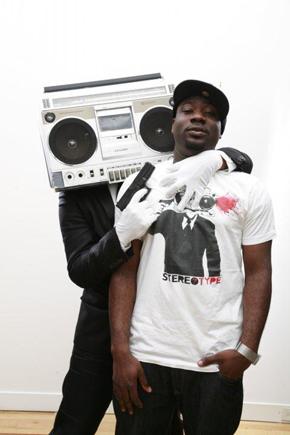 It is one pm, UK time as I set out to phone Blitz the Ambassador the Ghanaian born ‘musician/rapper’. I first got wind of his album Stereotype (2009) through some sources who were literally scrapping their skin off with excitement. Once I heard the album, I too found scrapping my skin off was the best way to relieve the excitement.
It is one pm, UK time as I set out to phone Blitz the Ambassador the Ghanaian born ‘musician/rapper’. I first got wind of his album Stereotype (2009) through some sources who were literally scrapping their skin off with excitement. Once I heard the album, I too found scrapping my skin off was the best way to relieve the excitement.
It is an album that pulls you in different times, directions and moods all whilst still being refreshing like ice cold, home-made lemonade, on a hot day. From old skool beats reminiscent of Big Daddy Kane with the high octane Kill The Radio to the exquisite Dying To Live a seven minute behemoth that was inspired by the untimely death of Dilla and features John Forte, the album has all the right ingredients to be a classic.
The album which he describes as his ‘debut’ despite it being his third to date is a serious must have, ‘My first two projects I do not even consider them albums, I consider them more as EPs. They were like a test and Stereotype I consider as my debut because that is the one that I was pushing and it best represents my work as an artist.’
It is an interesting phone call with the new dad as he talks to me and tries to placate his son (Jai) who wants his attention just as much as the media and other artist. Having featured with Nas and Damien Marley on their Distant Relatives Tour he is still excited having performed with them, ‘That was just amazing you know? These are people that I have looked up to and here I am performing with them on stage. I even had the chance to perform with I mean this guy was on my wall so this was huge. I am part of this shit now and it is just Big Daddy Kane crazy and I am just so humbled.’
Blitz is from the camp that looks at hip-hop from a purist perspective which is in stark contrast to the more commercial hip-hop that is prevalent in the scene today. ‘Hip-hop in its infancy was not about that cheque as such which is where I think that hip-hop is right now. Fortunately however people like K-naan, other African artists and I who grew up in hip-hop are kind of coming up as infants. We never really lived in the US when hip-hop was coming up and so we are the new innocent ones bringing hip-hop back to its purest form: its infancy.’ But what sets him apart from the purists in a sense is his twelve piece band Embassy which makes up the Blitz The Ambassador experience. From percussion, to horns to violins it adds a ‘rawness and energy’ that can only be fully appreciated ‘when you see us live man’.
A love of the iconic and hugely influential Public Enemy was the catalyst for his career and his “first real schooling into the world of hip-hop” as a young boy growing up in Ghana. ‘Honestly the choice to get into hip-hop as a career was a slow manifestation, I have always been an artist of some sort really I grew up being visual artist being in little art competitions. When I got older I kind of naturally got into hip-hop and rhyming but as far as it being a career and travelling the world it was not something that I had as a dream.’ He calls his eventual decision to be a rapper/musician more of a ‘necessity’.
He talks with real passion and purpose in wanting African artist and African issues to have a voice. ‘It’s critical that we are heard. For a long time we [African artists] have been spoken for. Right now, African artists cannot afford to be nameless. Finally the issues surrounding Africa are coming from the source. Before that it was left to “conscious rappers” in America to speak about the plight of Africa. It was left to artists like Mos Def, Talib Kweli, and Nas who knew Africa essentially from the confines of America. You now have an import of African artist that are speaking for themselves.’
Blitz has taken some big risks in his career so far and his next album by all accounts will again push the boundaries of what is accepted as hip-hop. ‘I think the way to top an album like Stereotype is not even to try’ he laughs, ‘What I am trying to do on my next project is do something different. The album I am working on will be called Native Son. In Stereotype I was trying to create a sum total of all my influences on an album. In this album I am reaching straight back into my roots, into highlife. It will be a whole different album and I will be singing in Twi and pidgin.’
He is currently half way through Native Son (which will be released early 2011) and it will feature prominent African artists like Rocky Dawuni (a Ghanaian reggae artists), legends of the High Life movement and a track that I cannot wait to hear with the brilliant Les Nubians (from Cameroon). He even hopes to collaborate with Nneka who has been getting steady and well earned plaudits.
As the interview draws to a close and Jai becomes more persistent, Blitz answers my question; ‘Are you a rapper?’ simply, ‘You have to know music to create music so I call myself a musician first and foremost.’
StereoLive EP out on iTunes. Stereotype album out now.
Big shout to Kwasi and Akua for organising the interview.







